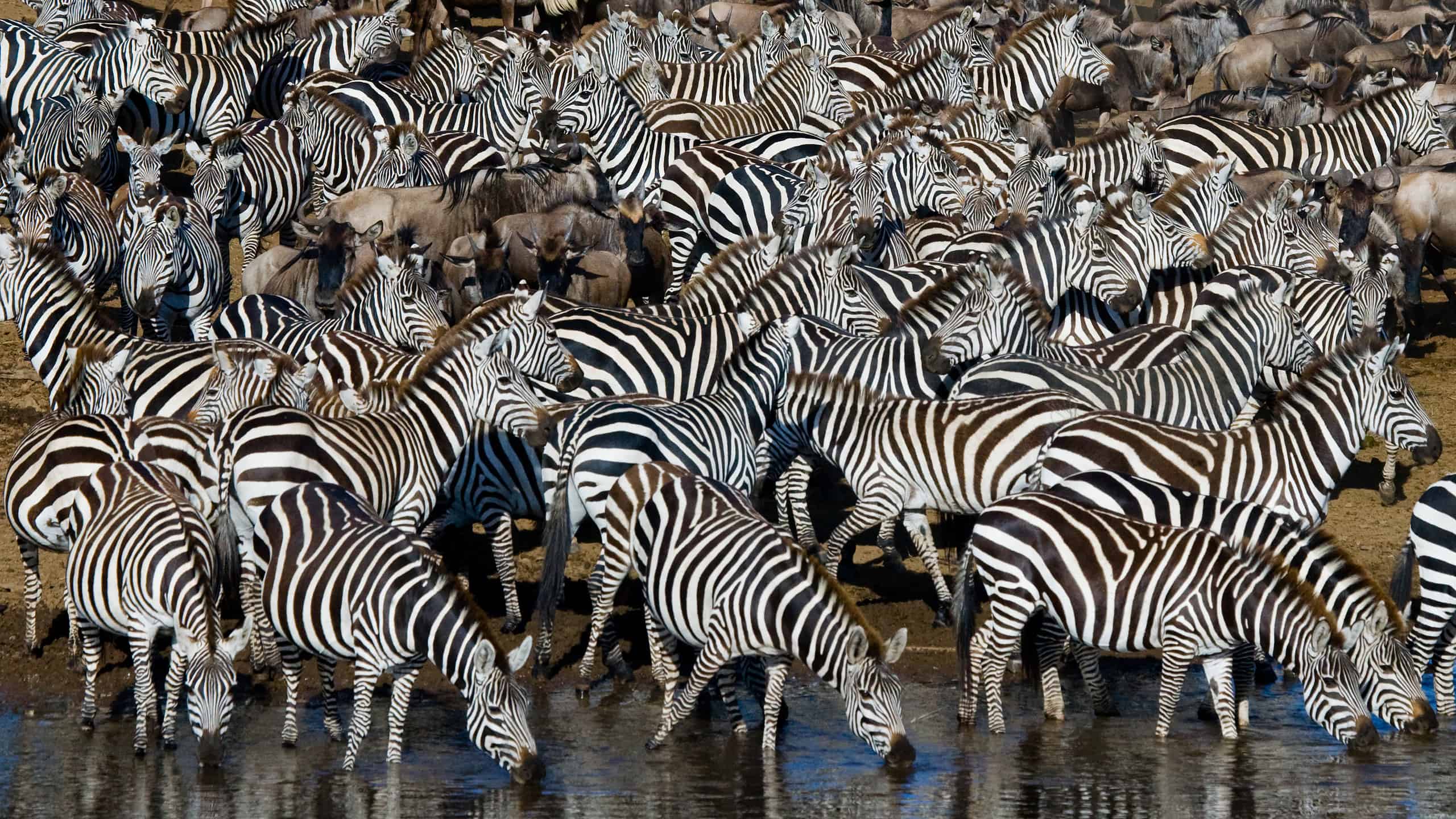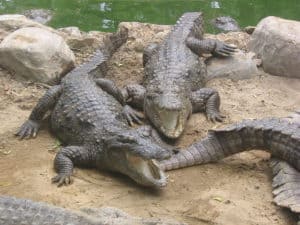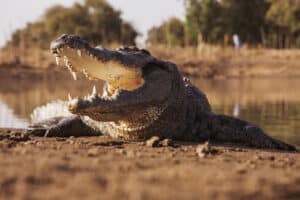This footage captures an incredible encounter in Serengeti Park. Zebras gather to quench their thirst during a drought, but onlookers record an intense moment of a crocodile attacking a zebra. Check out the video below!
Watch This Incredible Footage Below!
Where Do Crocodiles Live?
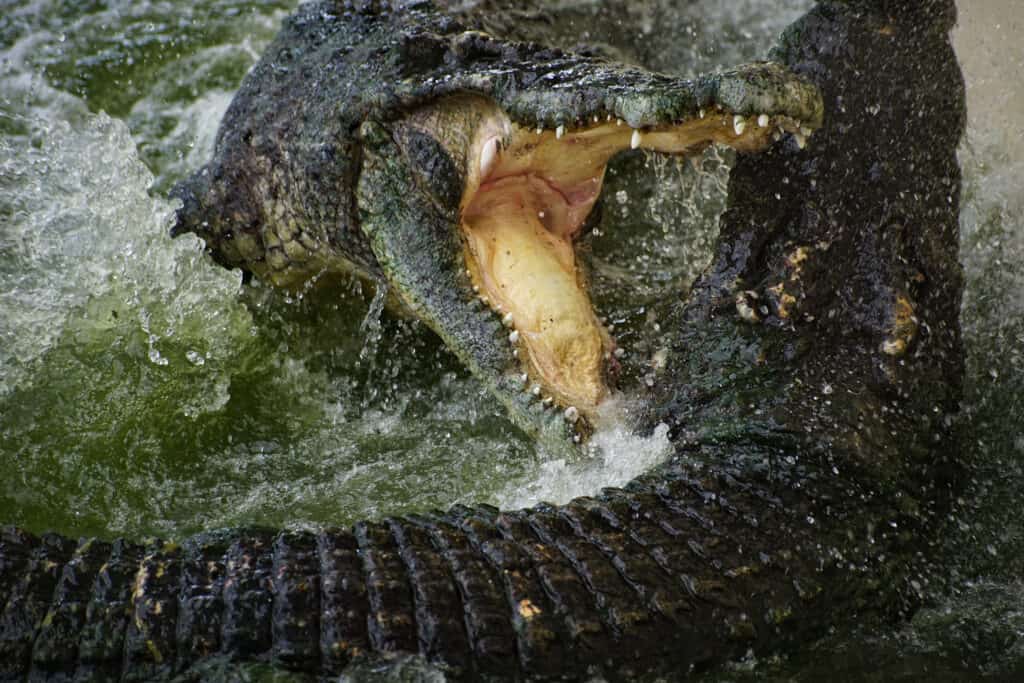
Crocodiles are one of the world’s fiercest predators.
©iTENG/Shutterstock.com
Crocodiles inhabit the majority of the world’s continents, including Asia, Africa, North and South America, and Australia. In the United States, crocodiles live only around the Florida tip, taking advantage of the saltwater in the Gulf and Atlantic. From there, you can find crocodiles settling in the coastal regions of southern Mexico to Peru and Venezuela. The southern two-thirds of Africa have crocodiles, as well as southern Asia (India, Philippines, Thailand, Singapore, and Indonesia). Only the northern tip of Australia, however, hosts crocodiles.
But it’s exclusively in Africa where crocodiles grapple with zebras, as we see in this clip of a crocodile attacking a zebra.
What Do Crocodiles Normally Eat?
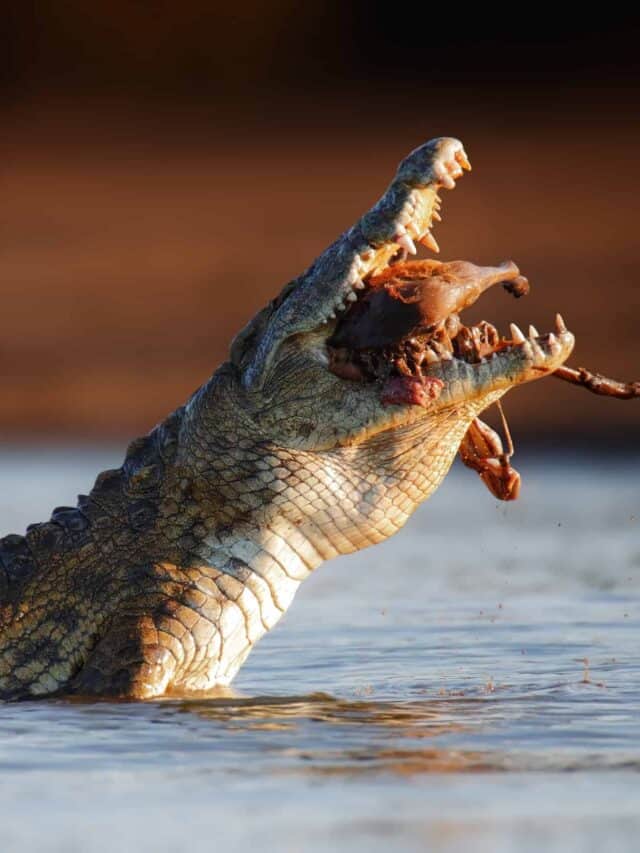
Crocodiles are ambush predators, which means they take down prey using the element of surprise. Pursuit predators, like a cheetah or wolf, use speed to hunt prey and are built for the endurance of the chase. Crocodiles, on the other hand, are huge carnivores, and it takes an enormous amount of energy to tail prey.
That is why crocodiles use their camouflage and stealth in the water to sneak up on prey. Crocodiles will favor muddy waters to blend in or often hunt at night, taking advantage of their superior night vision. Once a crocodile gets close enough, it will snap up smaller prey, consuming it whole. Or, for larger prey, like this crocodile attacking a zebra, a crocodile will pull the prey into the water, drowning it before eating.
Because it takes a lot of energy to hunt and because of their slow metabolism, crocodiles eat infrequently. When they do hunt, they primarily target fish, birds, frogs, and any other small mammal that they can crush and swallow whole. In fact, crocodiles will swallow small stones to pulverize the prey in their stomachs, helping with digestion and increasing their time underwater.
Crocodile Attacking A Zebra – Is It Normal?
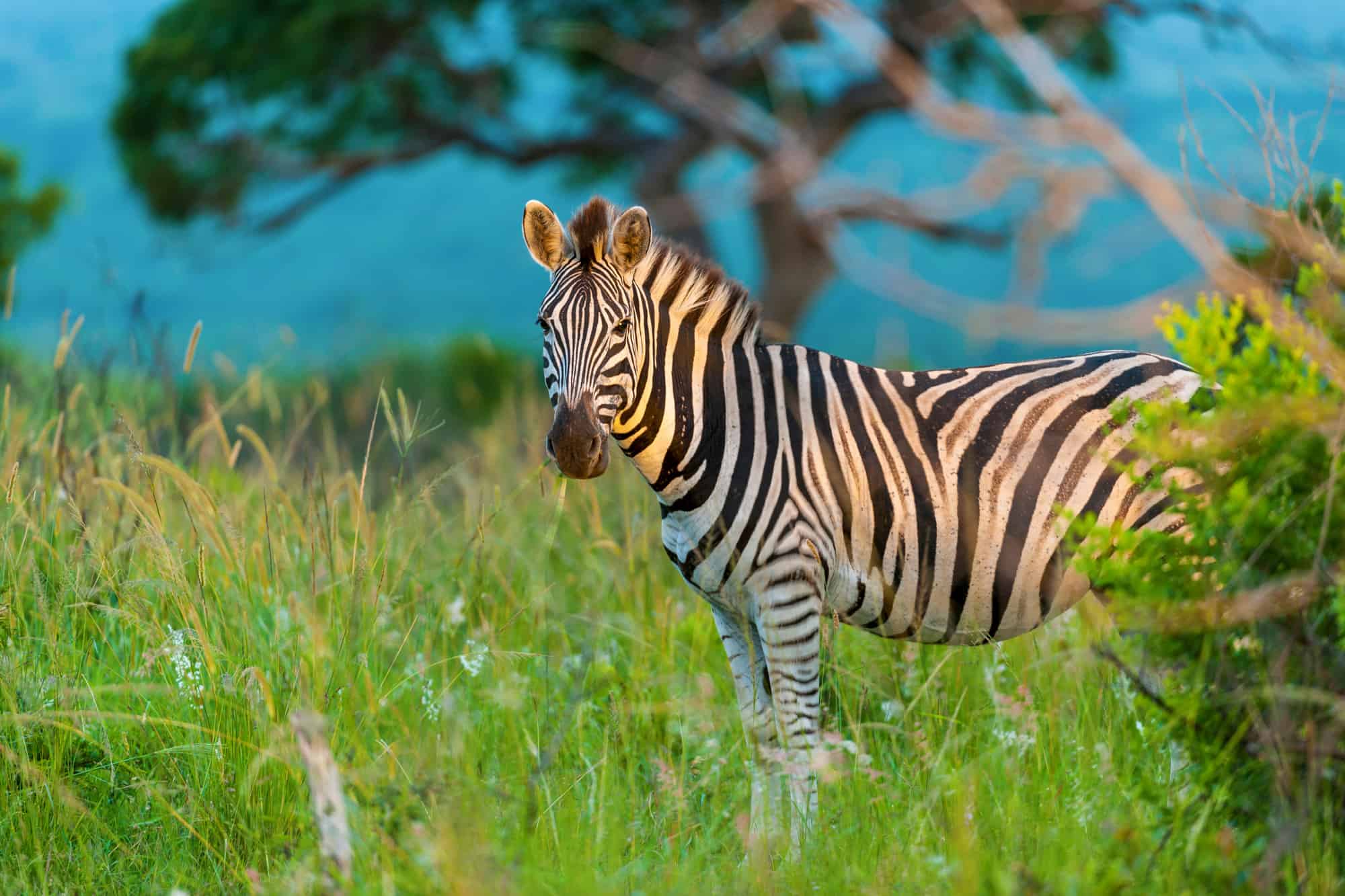
If a zebra wades into a croc’s waters, it’s not unusual for them to attack.
©Roger de la Harpe/Shutterstock.com
A crocodile is extremely powerful, and its pointed, cone-shaped teeth make it nearly impossible for prey to struggle out of its grip. If the opportunity presents itself, a crocodile will take down a larger mammal, such as this crocodile attacking a zebra. But it has to be an easy takedown. If a crocodile senses that it will be too much of a fight, it will retreat. As mentioned before, crocodiles have to guard their energy carefully.
As you can see from the video at the end of this article, as soon as the zebra has leverage to bite the crocodile’s back, the crocodile gives up pretty quickly. The crocodile only has a grip on the zebra’s hindquarters, which wasn’t a great position to drag the zebra underwater. If the crocodile had gotten a good grip on the zebra’s neck, this would have been a completely different video.
So, while crocodiles do occasionally eat zebras, they much prefer a single chomp meal. That is why they primarily feast on fish and small creatures. Those don’t bite back.
Thank you for reading! Have some feedback for us? Contact the AZ Animals editorial team.

